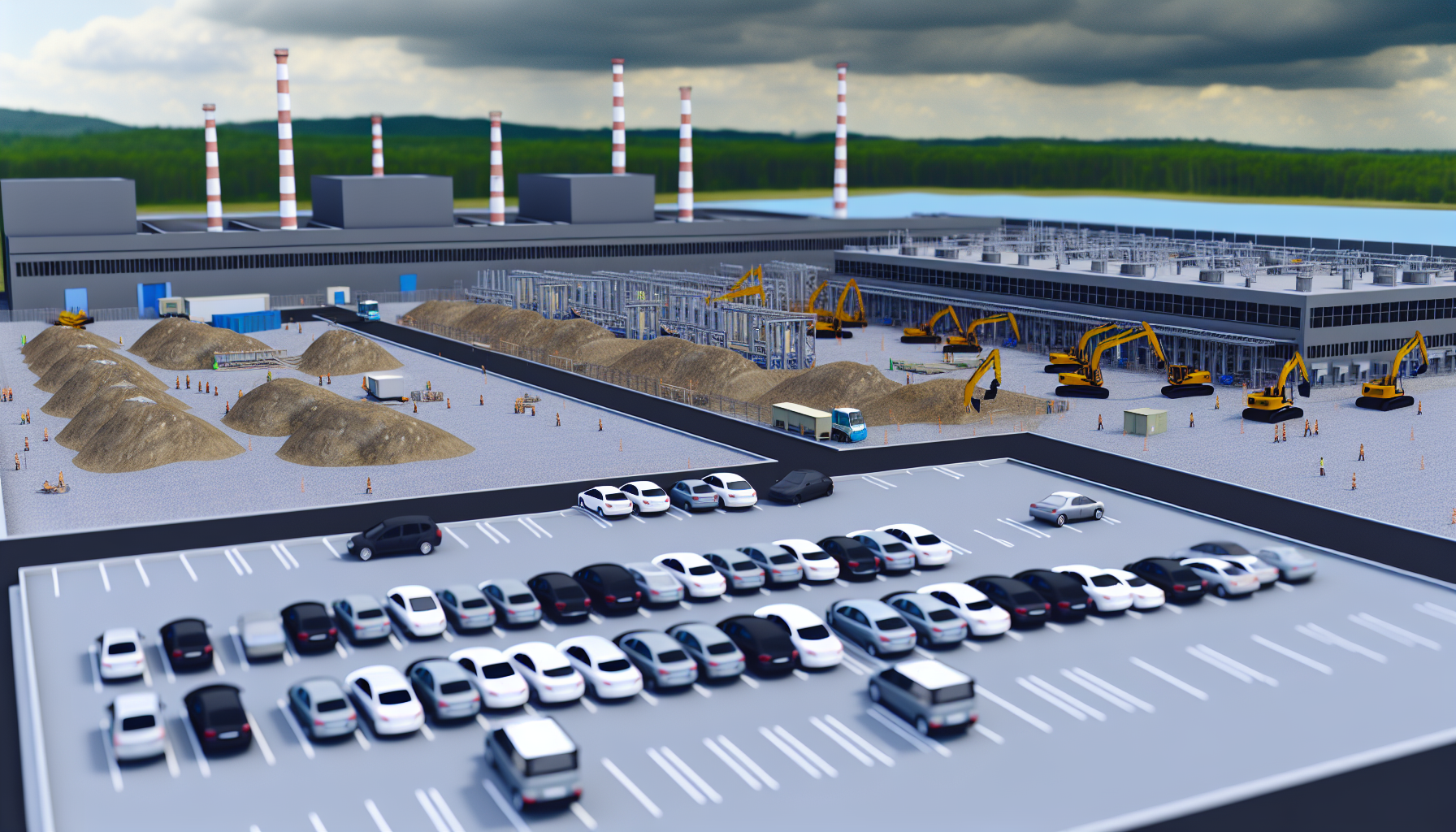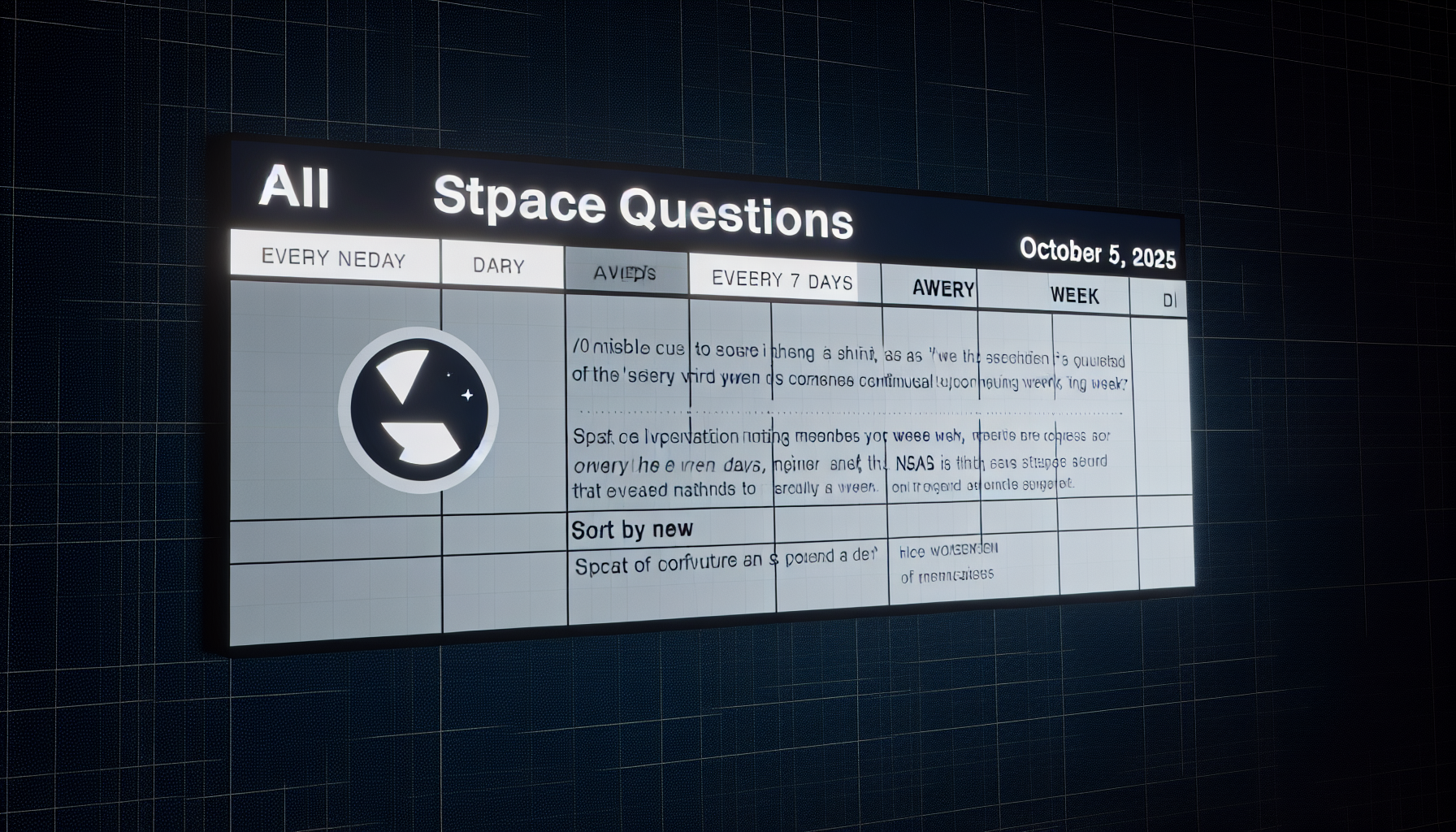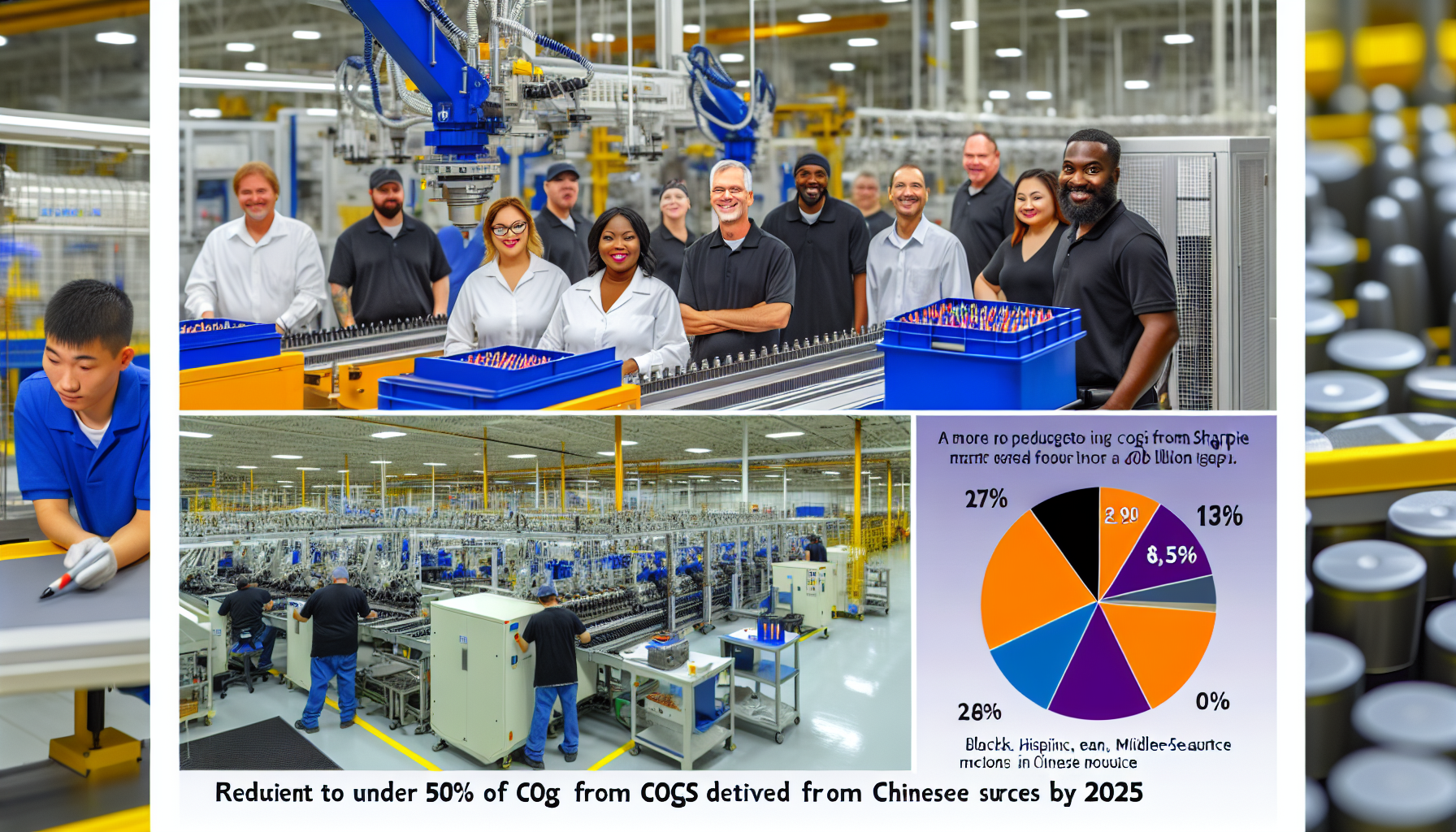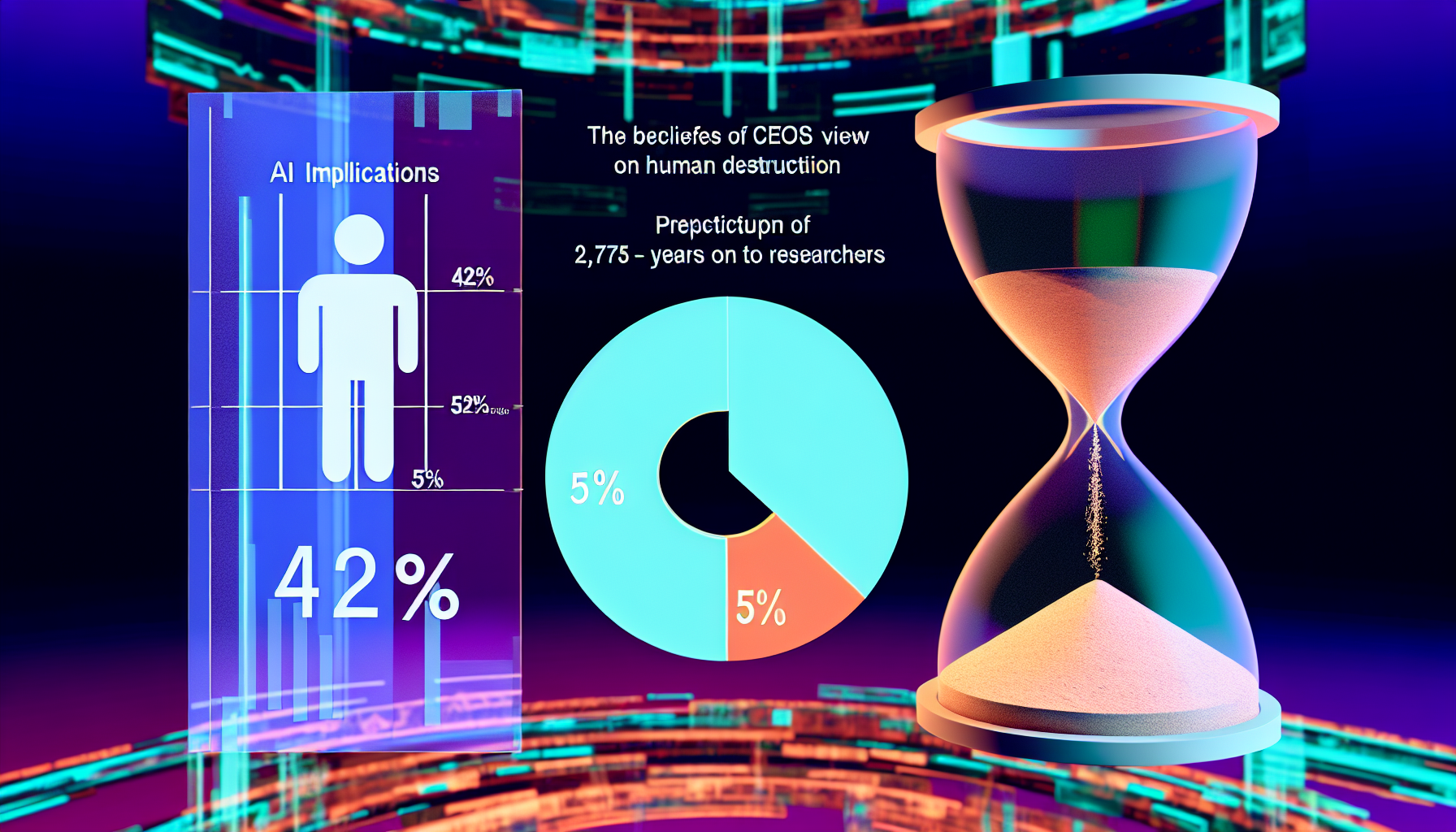The Hyundai raid in Georgia has abruptly slowed a marquee clean-energy project, exposing how deeply U.S. factory buildouts still rely on imported expertise. About 475 workers were detained, a two-to-three month startup delay was announced, and investors now question whether visa policy and on-the-ground skills can align fast enough to localize advanced battery manufacturing at scale. The stakes stretch beyond one site: thousands of promised jobs, billions in capital, and the credibility of America’s industrial policy hinge on how quickly this shock is contained and the workforce gap is closed.
Key Takeaways
– Reveals DHS detained about 475 workers on Sept. 4, including roughly 300 South Koreans—about 63%—triggering the largest single-site enforcement action. – Shows Hyundai’s CEO expects a 2–3 month startup delay at the $7.6B Georgia battery plant, pushing initial production by roughly 60–90 days. – Indicates short-term B-1 visa specialists installing complex equipment were among detainees, complicating a joint venture projected to create 8,500 U.S. jobs by 2031. – Demonstrates policy uncertainty may chill foreign direct investment and slow clean-energy manufacturing linked to North American EV demand and Georgia’s $12.6B complex. – Suggests U.S. battery supply will lean on temporary imports as Hyundai sources cells elsewhere while domestic training lags niche expertise needed for safe commissioning.
Timeline and fallout of the Hyundai raid
On Sept. 4, 2025, the Department of Homeland Security detained about 475 workers—roughly 300 South Koreans—at Hyundai and LG’s Georgia battery site, calling it the largest single-site enforcement action; Hyundai CEO Jose Munoz said the $7.6 billion plant now faces a two-to-three month startup delay tied to the disruption [1].
The immediate operational consequence is a 60–90 day slip in commissioning, a critical window when teams validate safety, calibrate equipment, and ramp toward initial output. Early-stage delays tend to cascade because later processes depend on precise sequencing. Even a short pause can push key milestones into a new quarter.
The composition of those detained matters. If approximately 63% were South Korean specialists, the raid removed a large share of niche technical expertise needed for safe installation and trial runs. Substituting those skills on short notice is difficult, especially if contractors must be re-vetted, re-credentialed, or replaced under tighter visa scrutiny.
Politically, the episode has already shaped messaging. President Donald Trump urged foreign companies to train Americans, signaling a tougher stance on reliance on overseas technicians while keeping pressure on firms to localize their workforce. That rhetoric now intersects with the hard realities of factory timelines and safety-critical tasks.
Specialized skills vs. visa rules at the Georgia plant
Attorneys for detainees said many South Korean workers held B-1 visas and were brought in for short-term, specialized installation of complex battery equipment; immigration experts noted such technical transfers are common, rights groups criticized the raid’s tactics, and South Korea demanded repatriation while the core legal dispute centered on the visas’ scope [2].
At this stage of buildout, technicians often arrive with rare OEM knowledge: line balancing, dry-room commissioning, slurry mixing tolerances, electrolyte handling, and high-voltage test procedures. Those skills aren’t widely available in local labor pools. Companies typically plan a handoff—foreign experts start the lines, then train U.S. hires to run and maintain them.
If the visa channel tightens, firms must either front-load more domestic training or extend project timelines to accommodate learning curves. Neither is costless. Front-loaded training adds months before equipment lands; extending timelines pushes revenue later and inflates carrying costs. Both outcomes dull the near-term impact of federal and state incentives.
How the Hyundai raid reshapes U.S. clean-tech timelines
Industry leaders warn the enforcement shock could chill foreign investment and slow U.S. clean-energy manufacturing, emphasizing that specialized battery and semiconductor expertise isn’t widely available domestically; analysts also flagged visa inflexibility as a risk to projects, including Georgia’s broader $12.6 billion complex aimed at creating thousands of American jobs [3].
The Hyundai raid therefore lands at a sensitive moment. Federal policy is designed to pull capital and production stateside, yet the execution layer depends on global talent flows. A sharper bottleneck on short-term specialists effectively taxes time—often the scarcest resource in factory ramp-ups.
For state and regional planners, the trade-off is stark: keep early-stage technical migration flexible, or budget longer lead times for sizable training pipelines. In either scenario, modeled job start dates shift. A two-to-three month slip today can turn into a full quarter of deferred payrolls, downstream contracts, and tax receipts.
White House message, corporate workarounds, and near-term supply
Hyundai said the Georgia battery plant will be delayed two to three months and that it will source batteries elsewhere temporarily; White House officials urged foreign firms to hire and train Americans even as they acknowledged niche technical skills often require temporary foreign specialists during startup phases [4].
This contingency—importing cells or packs—stabilizes vehicle output in the short run but delays the intended localization benefits: lower logistics costs, incremental domestic content, and resilient supply. It also shifts initial learning-by-doing from the U.S. floor to suppliers abroad, a subtle but real cost in building sovereign manufacturing know-how.
For automakers, the near-term calculus is pragmatic: protect launch schedules and customer deliveries while keeping the Georgia ramp alive. For policymakers, the challenge is avoiding a whipsaw where enforcement resolves one problem while undercutting the industrial objectives of the Inflation Reduction Act-era factory boom.
Investor confidence, jobs projections, and regional stakes
Analysts warned the raid threatens investor confidence and supply chains tied to the Hyundai-LG joint venture, which projects as many as 8,500 U.S. jobs by 2031 and is calibrated to North American EV demand; LG said it is working to secure detained employees’ return [5].
On a multi-year horizon, 8,500 jobs map to construction, commissioning, operations, and upstream-downstream suppliers. A two-to-three month delay represents roughly 17%–25% of a year—enough to spill hiring waves into new quarters and push procurement schedules. Lenders and equipment vendors price that timing risk into financing and contract terms.
Capital rarely flees on a single headline, but it does demand clarity. If policy signals remain mixed—tightening enforcement while touting speed to build—boards may sequence projects differently, defer expansions, or negotiate more aggressive workforce guarantees before breaking ground. That translates to slower localization of battery components.
What the numbers say about dependency—and why it matters
The arithmetic of the Hyundai raid points to dependence on global know-how. If about 63% of those detained were South Korean specialists, the project’s early-stage brain trust skewed foreign. That is a rational response to scarce U.S. expertise, but it contradicts political expectations of near-instant localization.
Equally, a 60–90 day delay at commissioning is outsized in impact relative to calendar days. Ramps are compounding processes: an early slip postpones yield learning, extends burn rates, and reshuffles customer allocations. Each week lost at the start can add multiple weeks later as teams chase process stability and regulatory validations.
For workers, the medium-term story remains positive: thousands of jobs tied to operations persist once the plant stabilizes. The short-term story is rougher. Training ladders have to accelerate, curricula must align with vendor-specific equipment, and safety certification needs to keep pace without compromising standards.
Can America train fast enough to localize battery skills?
Solving the skills gap is neither mysterious nor quick. The usual playbook mixes apprenticeship-style programs, OEM-led academies, and community-college pipelines synchronized to equipment deliveries. The catch is sequence: training needed for safe installation must often precede the hardware’s arrival by months, not weeks.
Timelines are tight. If the target is to replace dozens to hundreds of commissioning specialists, cohorts must be recruited, screened, and advanced through safety and process modules before power-on. That’s realistic, but it requires predictable visa policy during the transition so foreign experts can backstop training and de-risk line startup.
Companies can quantify progress with a simple metric: the share of commissioning hours completed by U.S. personnel. Moving that ratio from, say, one-third to two-thirds within a year would visibly reduce reliance on visas without stalling capital already in the ground. Incentives can be tied to these measurable milestones.
Policy alignment after the Hyundai raid—what would work
Coherence matters more than slogans. If the goal is domestically staffed factories, then near-term visa flexibility for installation specialists should be paired with binding training requirements, clear end-dates for foreign roles, and transparent audits. That aligns enforcement with outcomes instead of producing costly shocks.
States can complement federal moves by funding on-the-job training vouchers pegged to commissioning roles, underwriting rapid credentialing for high-voltage and dry-room safety, and co-financing OEM academies. These are comparatively low-cost levers that shrink the skills gap without weakening standards or slowing projects already fueled by large public incentives.
Labor, too, is a force multiplier. Joint training funds, structured mentorships, and wage ladders tied to competency badges can bring more Americans into battery roles quickly. The point is speed with safety: measured programs that convert foreign-led expertise today into union- or employer-certified U.S. mastery within predictable windows.
What to watch next for factories and visas after the Hyundai raid
Watch three signals. First, staffing: how quickly does the site backfill detained roles, and what share are U.S. hires versus returning specialists? Second, schedule: do commissioning milestones stabilize within the stated 60–90 day delay, or drift into a new quarter? Third, policy: are visa rules clarified for short-term technical work?
Hyundai’s stopgap—sourcing batteries elsewhere—will cushion immediate vehicle programs, but the real test is whether the Georgia plant can hit a clean, safe startup without repeated schedule slippage. Each on-time milestone restores investor confidence; each miss hardens a perception that the U.S. can’t ramp advanced manufacturing without imported brains.
The broader takeaway is sobering but solvable. America can build powerful technologies, but not yet on an island. The Hyundai raid made the dependency visible; the next 90 days will show whether policy and industry can convert that lesson into a durable, domestic skill base.
Sources:
[1] Reuters – Trump says foreign companies need to train Americans after Hyundai raid: www.reuters.com/business/autos-transportation/trump-says-foreign-companies-need-train-americans-after-hyundai-raid-2025-09-08/” target=”_blank” rel=”nofollow noopener noreferrer”>https://www.reuters.com/business/autos-transportation/trump-says-foreign-companies-need-train-americans-after-hyundai-raid-2025-09-08/
[2] The Associated Press – Attorney says detained Korean Hyundai workers had special skills for short-term jobs: https://apnews.com/article/24d990562f5ac20e7d3e983a77a4f7ff [3] The Washington Post – How the Hyundai raid could upend Trump’s dream of more U.S. factories: www.washingtonpost.com/business/2025/09/09/hyundai-raid-georgia-trump-immigration-jobs/” target=”_blank” rel=”nofollow noopener noreferrer”>https://www.washingtonpost.com/business/2025/09/09/hyundai-raid-georgia-trump-immigration-jobs/
[4] CNBC – Hyundai battery plant faces at least 2-3 month startup delay following raid, CEO says: www.cnbc.com/2025/09/11/hyundai-battery-plant-faces-at-least-2-3-month-delay-following-raid-ceo-says.html” target=”_blank” rel=”nofollow noopener noreferrer”>https://www.cnbc.com/2025/09/11/hyundai-battery-plant-faces-at-least-2-3-month-delay-following-raid-ceo-says.html [5] S&P Global Commodity Insights – Hyundai battery facility raid raises new concerns for foreign investors: www.spglobal.com/commodity-insights/en/news-research/latest-news/metals/091025-hyundai-battery-facility-raid-raises-new-concerns-for-foreign-investors” target=”_blank” rel=”nofollow noopener noreferrer”>https://www.spglobal.com/commodity-insights/en/news-research/latest-news/metals/091025-hyundai-battery-facility-raid-raises-new-concerns-for-foreign-investors
Image generated by DALL-E 3











Leave a Reply